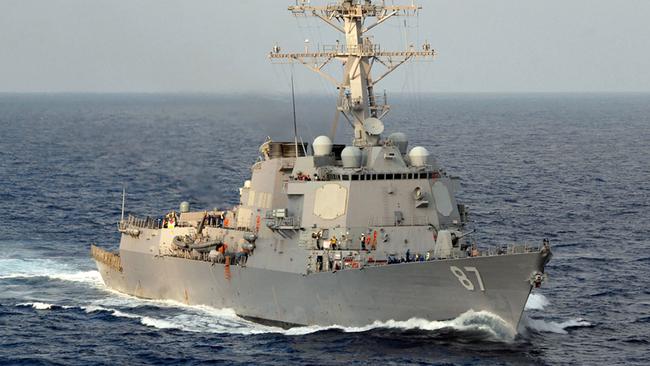Australian trade flowing from Asia is safe but eventually Red Sea disruptions will hit home
Australia sources around 20 per cent of its imports from Europe with the vital supply line through the Red Sea disrupting that trade to slow down shipping times and increase shipping and freight costs.

Australian shoppers awaiting luxury goods and foods - from Italian couches to French cheeses - could be facing the most significant delays in arrival on the back of the Red Sea terror attacks, as retailers nationwide navigate the unfolding crisis hitting ports and trade routes.
The flow of imports to Australia and exports from our shores is mostly sheltered for now from the terrorist attacks now peppering the vital Red Sea supply line, but local shipping and freight industry experts have warned there could be a knock-on effect of delayed supplies and higher costs due to disrupted global supply chains.
Australia only obtains around 20 per cent of its imported goods from Europe which is shipped through the Red Sea, with much of the nation’s consumer electronics, home goods, clothing, footwear, fuel and machinery sent directly from Asia.
However, while computers, T-shirts and iPhones might still arrive on time from Australia’s northern trading partners there could be delays and shortages of more luxury items such as Italian couches and marble benchtops or exotic French cheeses as ships bypass the Red Sea and take the long way around via the Cape of Good Hope.
And these voyages via the Cape of Good Hope add at least 10 days and over 15 per cent to shipping costs.
“There are delays of between and 10 and 14 days with vessels going around the Cape of Good Hope rather than the Suez Canal and Red Sea … and it’s a bit of moving story at the moment,” Freight and Trade Alliance director Paul Zalai told The Australian.
“And in terms of Australia, it depends what commodities you are importing or exporting, and if you are dependent on Italian leather lounges or exotic French cheeses out of Europe you are going to be experiencing those delays.
“So for those products coming out of the Mediterranean and European ports there will be significant delays and extra costs and this will have a knock on effect.”
Mr Zalai said many importers could also start to horde products and keep higher supplies at hand, as opposed to the normal ‘’just in time’ supply at hand, to see local warehouses fill up and warehouse space could become scarce, and therefore more expensive for companies - which would likely be passed on down the line to customers.
Around 12 per cent of the world’s seaborne trade flows through the Red Sea and the attacks from Houthi fighters is forcing shippers to delay deliveries from Asia to Europe by sailing around the Cape rather than through the Suez Canal. Currently eight of the top 10 container lines have confirmed they will re-route away from the strait.
At the moment no retailers have complained of any slowdown in supplies or problem getting their hands on goods. A spokeswoman for the Australian Retailers Association, which represents the $400bn retail sector, said there was some talk of congestion at local ports but no shipping issues linked to disruptions in the Red Sea.
Harvey Norman co-founder and chairman Gerry Harvey told The Australian he has had no issue as yet.
“But we get most of our products from Asia, which isn’t a problem, but if it was a problem I would have heard it and I’ve heard nothing as yet,” he said.
Anthony Scali, the chief executive of furniture chain Nick Scali, mirrored the comments from the Harvey Norman chairman but said the bigger problem was the current strike at DP World terminals in Australia which was causing more headaches than terrorist attacks in the Red Sea.
“That’s not an issue. We have had delays due to ongoing industrial action since mid November at DP World ports here which are expected to continue through January.”
Container Transport Alliance Australia director Neil Chambers told The Australian the Red Sea attacks was impacting on product coming to and from the Mediterranean, Europe and The Gulf ports with 17 per cent to 20 per cent of Australia’s imports coming from those destinations.
He said this could feed into higher inflation as the delays and costs of sending ships the long way around and avoiding the Red Sea is passed on to consumers.




To join the conversation, please log in. Don't have an account? Register
Join the conversation, you are commenting as Logout